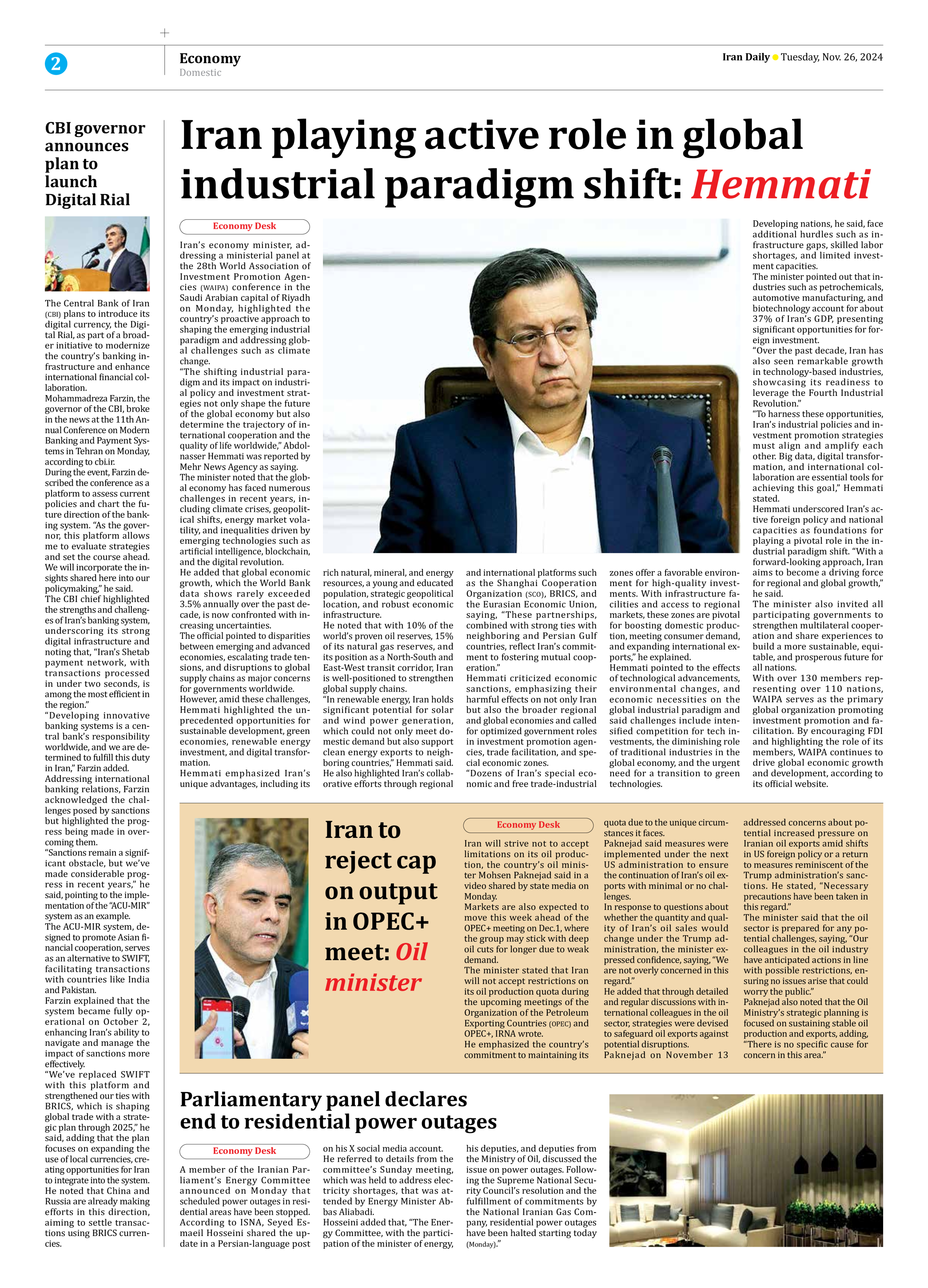
Copy in clipboard...
CBI governor announces plan to launch Digital Rial
Mohammadreza Farzin, the governor of the CBI, broke in the news at the 11th Annual Conference on Modern Banking and Payment Systems in Tehran on Monday, according to cbi.ir.
During the event, Farzin described the conference as a platform to assess current policies and chart the future direction of the banking system. “As the governor, this platform allows me to evaluate strategies and set the course ahead. We will incorporate the insights shared here into our policymaking,” he said.
The CBI chief highlighted the strengths and challenges of Iran’s banking system, underscoring its strong digital infrastructure and noting that, “Iran’s Shetab payment network, with transactions processed in under two seconds, is among the most efficient in the region.”
“Developing innovative banking systems is a central bank’s responsibility worldwide, and we are determined to fulfill this duty in Iran,” Farzin added.
Addressing international banking relations, Farzin acknowledged the challenges posed by sanctions but highlighted the progress being made in overcoming them.
“Sanctions remain a significant obstacle, but we’ve made considerable progress in recent years,” he said, pointing to the implementation of the “ACU-MIR” system as an example.
The ACU-MIR system, designed to promote Asian financial cooperation, serves as an alternative to SWIFT, facilitating transactions with countries like India and Pakistan.
Farzin explained that the system became fully operational on October 2, enhancing Iran’s ability to navigate and manage the impact of sanctions more effectively.
“We’ve replaced SWIFT with this platform and strengthened our ties with BRICS, which is shaping global trade with a strategic plan through 2025,” he said, adding that the plan focuses on expanding the use of local currencies, creating opportunities for Iran to integrate into the system.
He noted that China and Russia are already making efforts in this direction, aiming to settle transactions using BRICS currencies.







